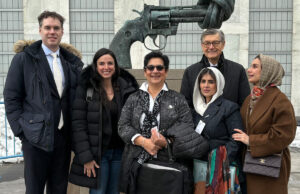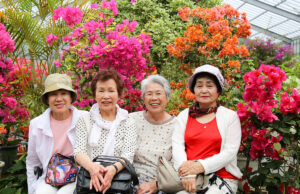The November session of the Global Ageing Network’s Leadership Program focused on the workforce. The speakers made the case for a global workforce and how essential it is that our sector address our workforce challenges globally rather than at the country level.
Salvatore Petronella, of Labor Mobility Partnerships (LaMP), set the stage with data from the United Nations Department of Economic and Social Affairs (UNDESA). The developing world faces a massive problem: the working age population in low-income countries will increase by 1.4 billion by 2050 while only 60% of this growing population will be likely to find living wage jobs in their home country. This means that by 2050, there will be roughly 590 million people with limited employment opportunities. Organisation for Economic Co-operation and Development (OECD) countries have the opposite problem. 400 million new workers are required to maintain current worker-to-older-adult ratios through 2050, of which at least 13.5 million will be needed in aged care.
Petronella suggests that well-designed labor mobility models can overcome the existing barriers. Labor mobility is not only a necessity for addressing global aging, but done ethically, can reduce poverty and lead to global justice. More specifically, migrating to work in another country can double or triple the income of individual workers, bringing many out of poverty.
Femada Shamam, CEO of The Association for the Aged (TAFTA) in Durbin, South Africa, reinforced the important point that labor mobility requires embracing a diverse workforce, being culturally aware and managing the complexity that comes with diversity. This is particularly true in aged care with a high degree of direct care work. For example, in the Zulu culture, looking someone in the eye when you talk to them is a sign of disrespect. In contrast, in the Western world it is disrespectful not to look someone in the eye. This is just one example, among many, of how important it is that aged care providers who benefit from foreign-born workers take the time to learn about other cultures, understand their own biases, and build workplace cultures of respect and understanding.
As we work towards a truly global workforce in aged care, the issues of cultural awareness, sensitivity, and respect are paramount. Building functional labor mobility ecosystems that include elements like visa processing training and skills recognition also requires that we ensure the aged care communities are welcoming and supportive of a more diverse workforce.





